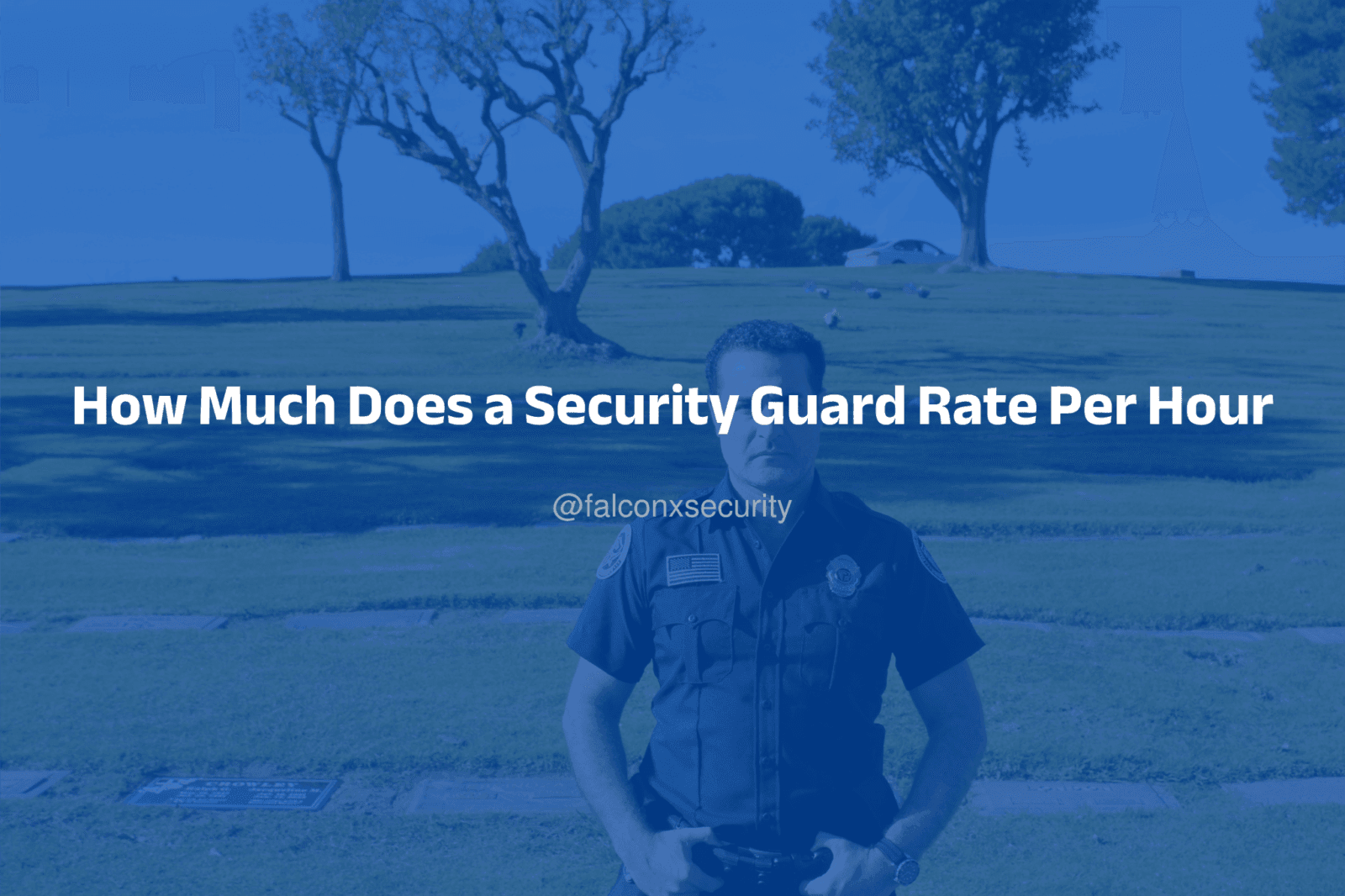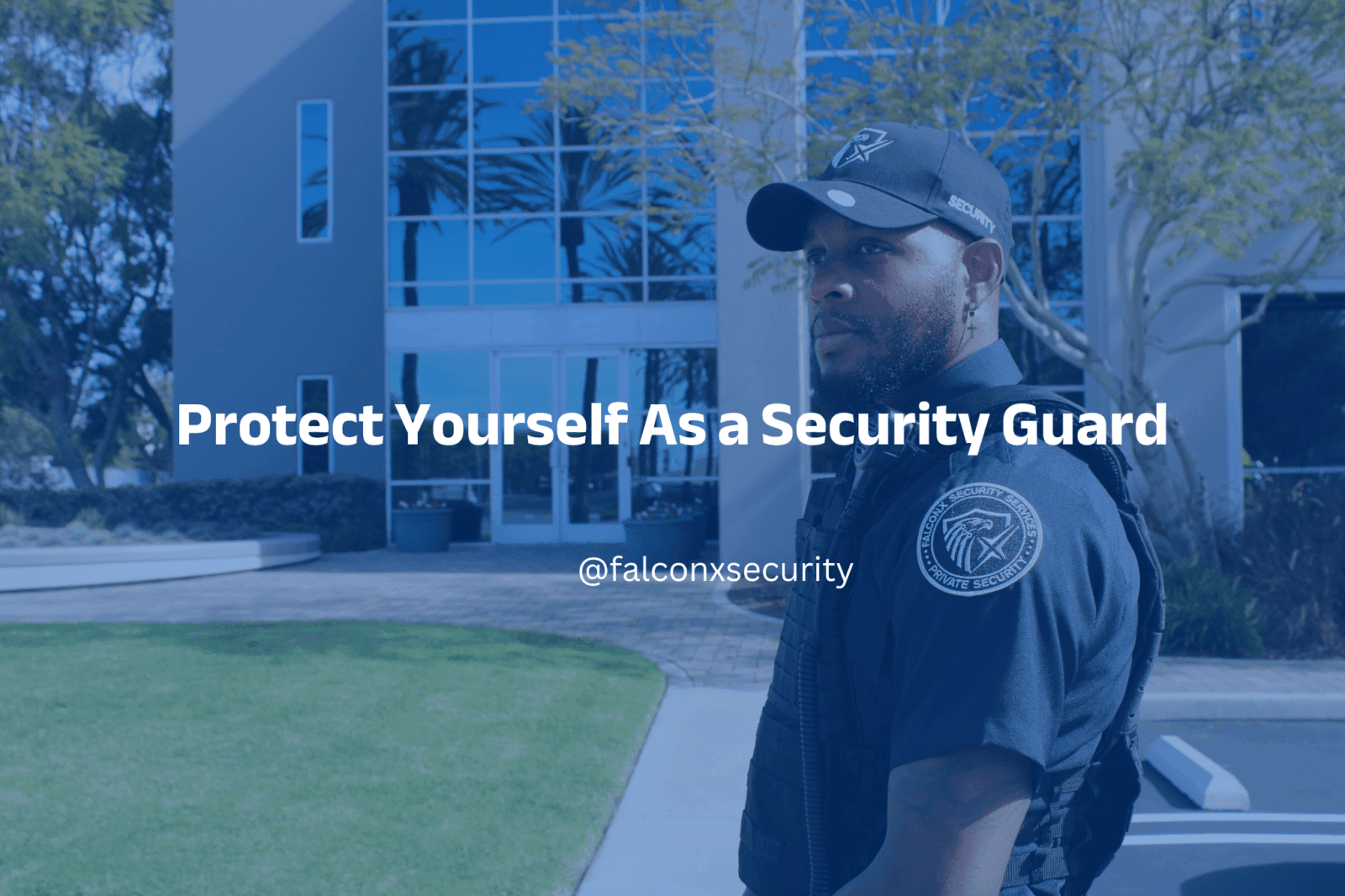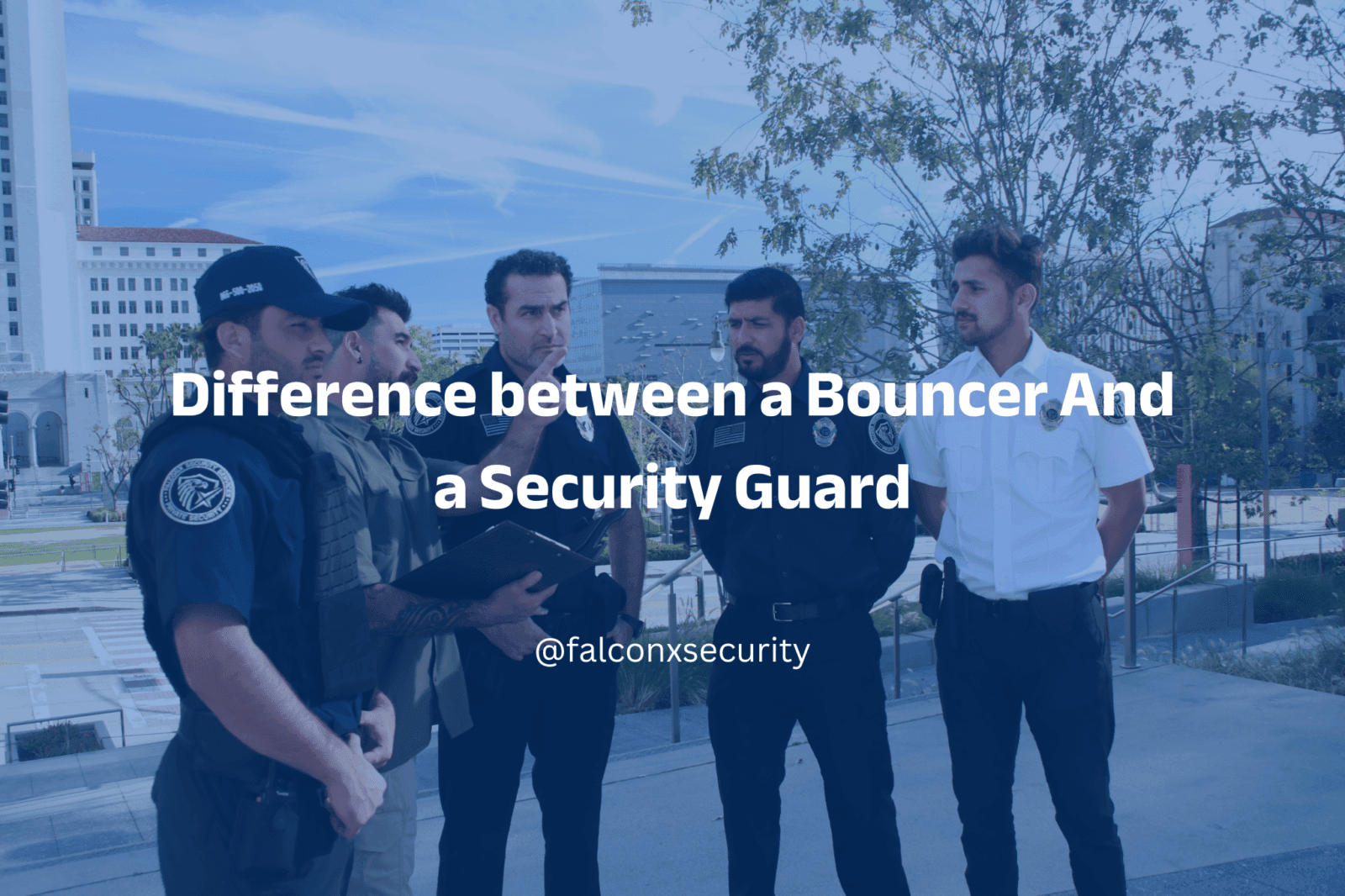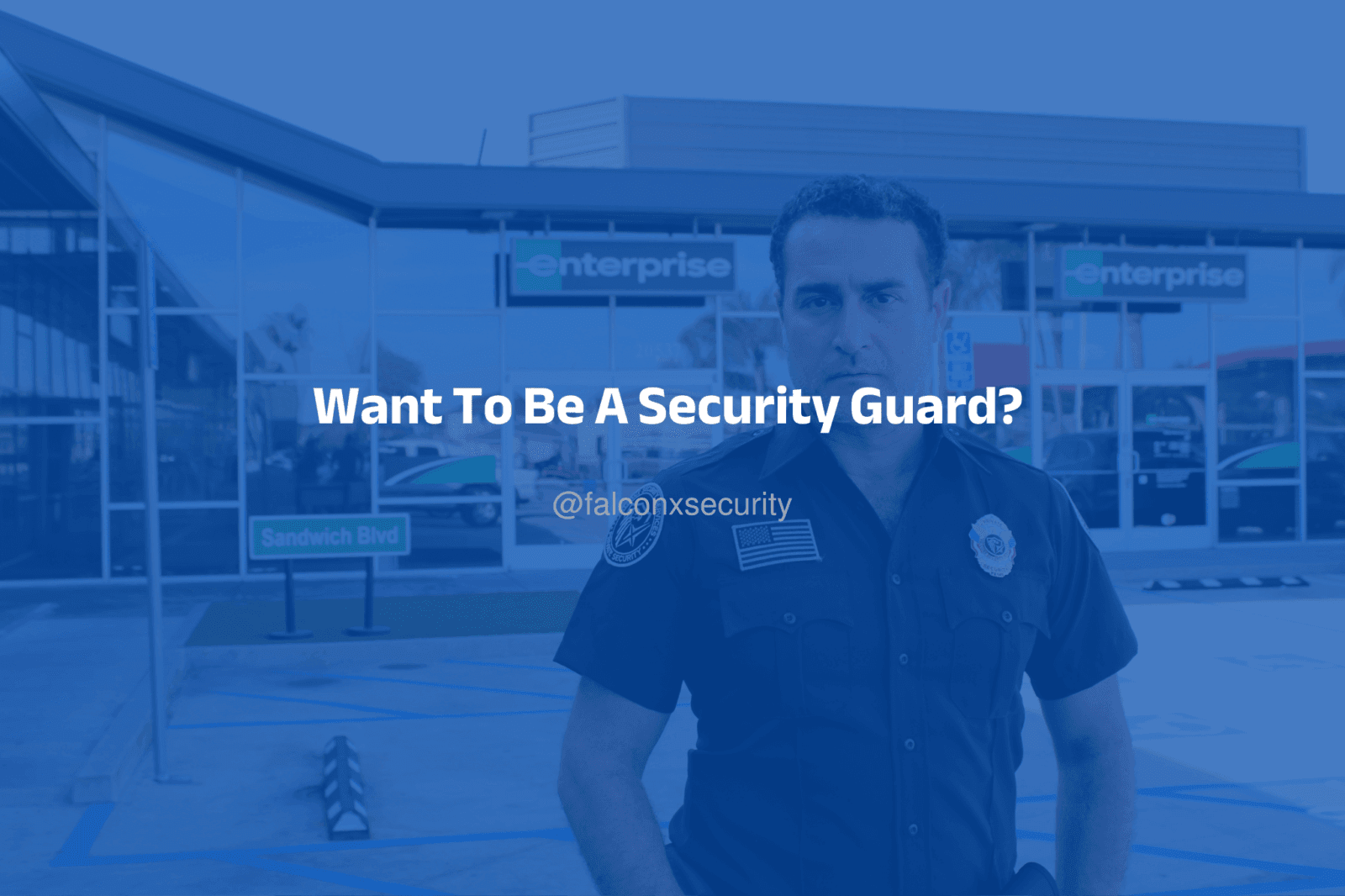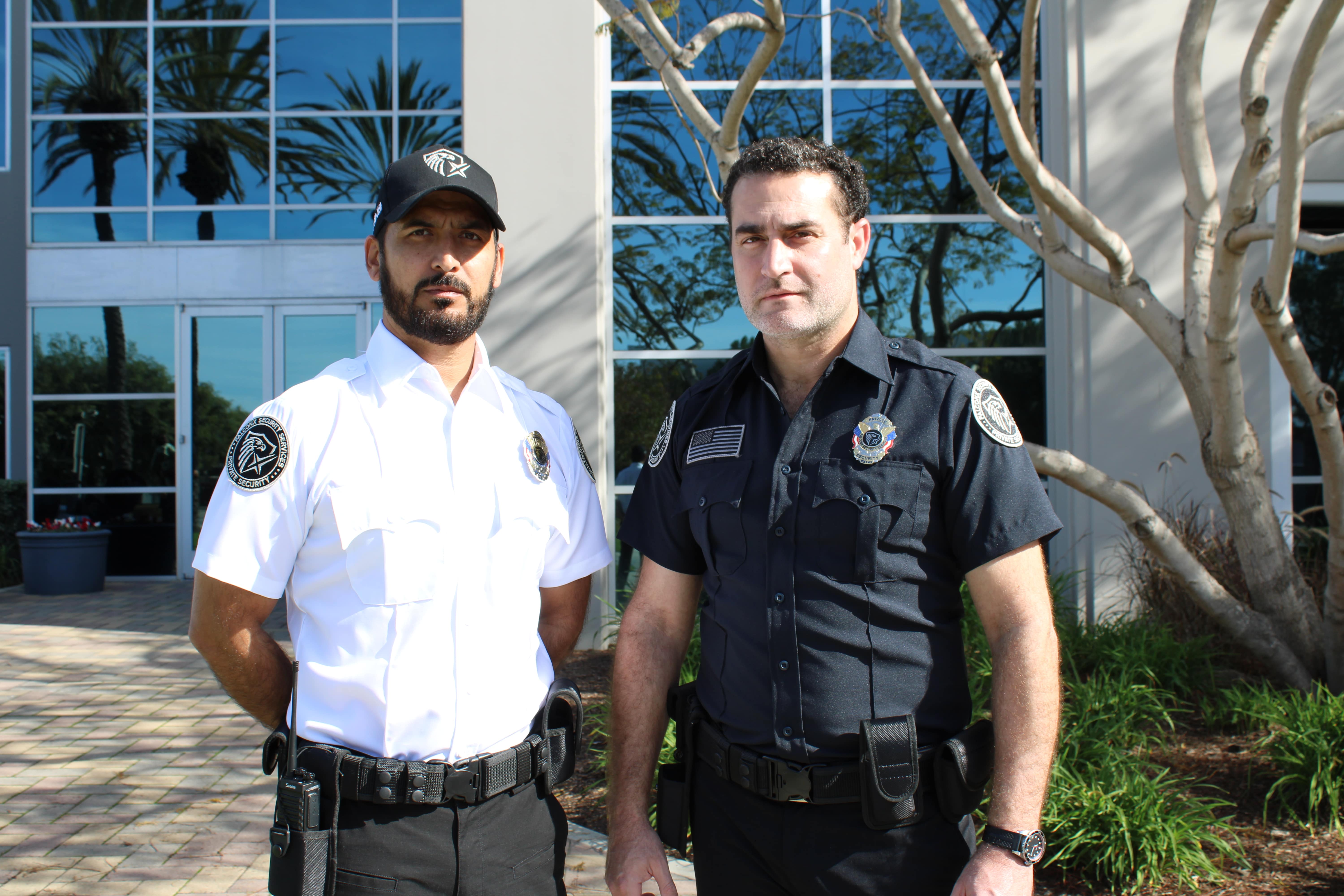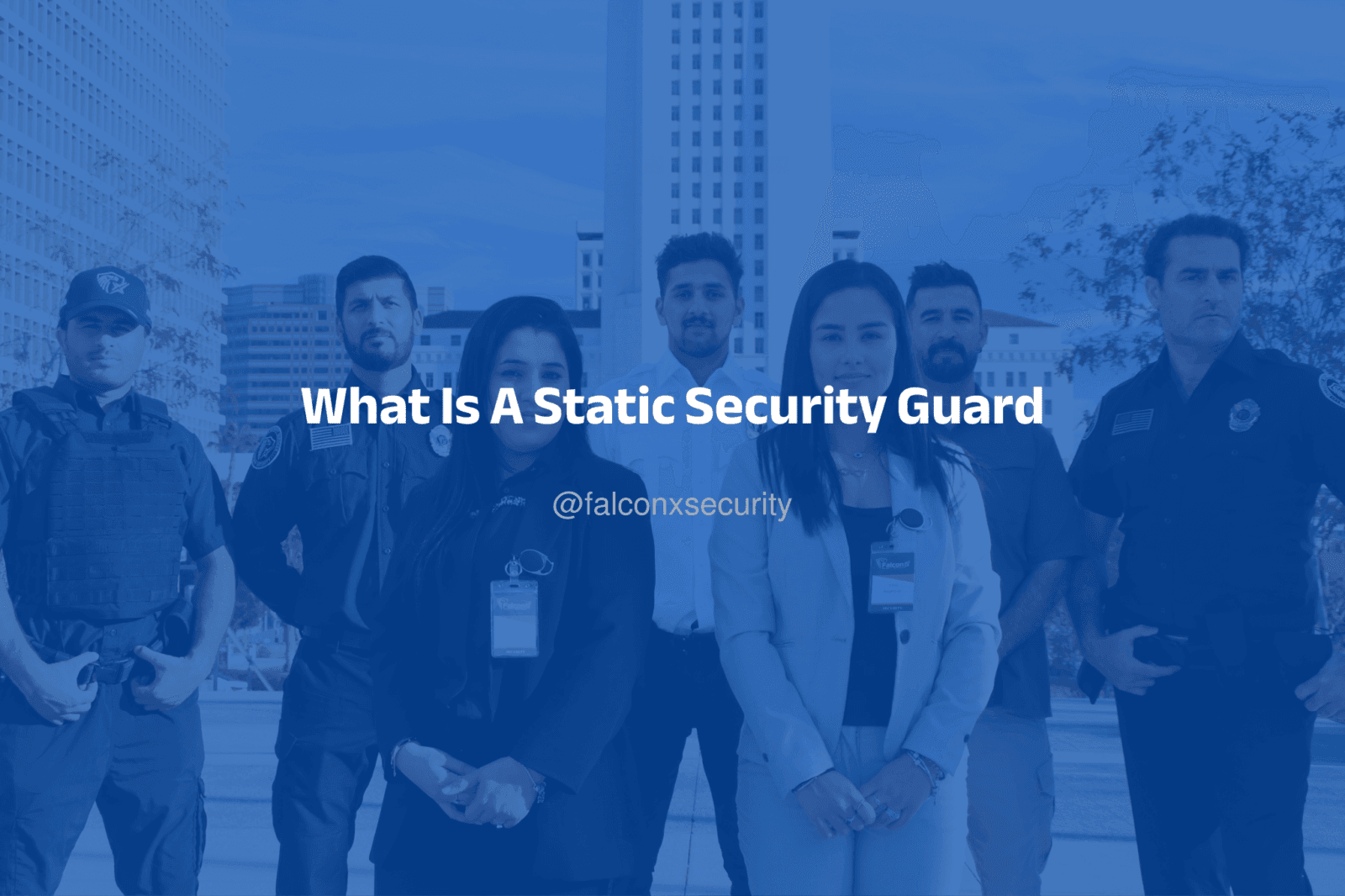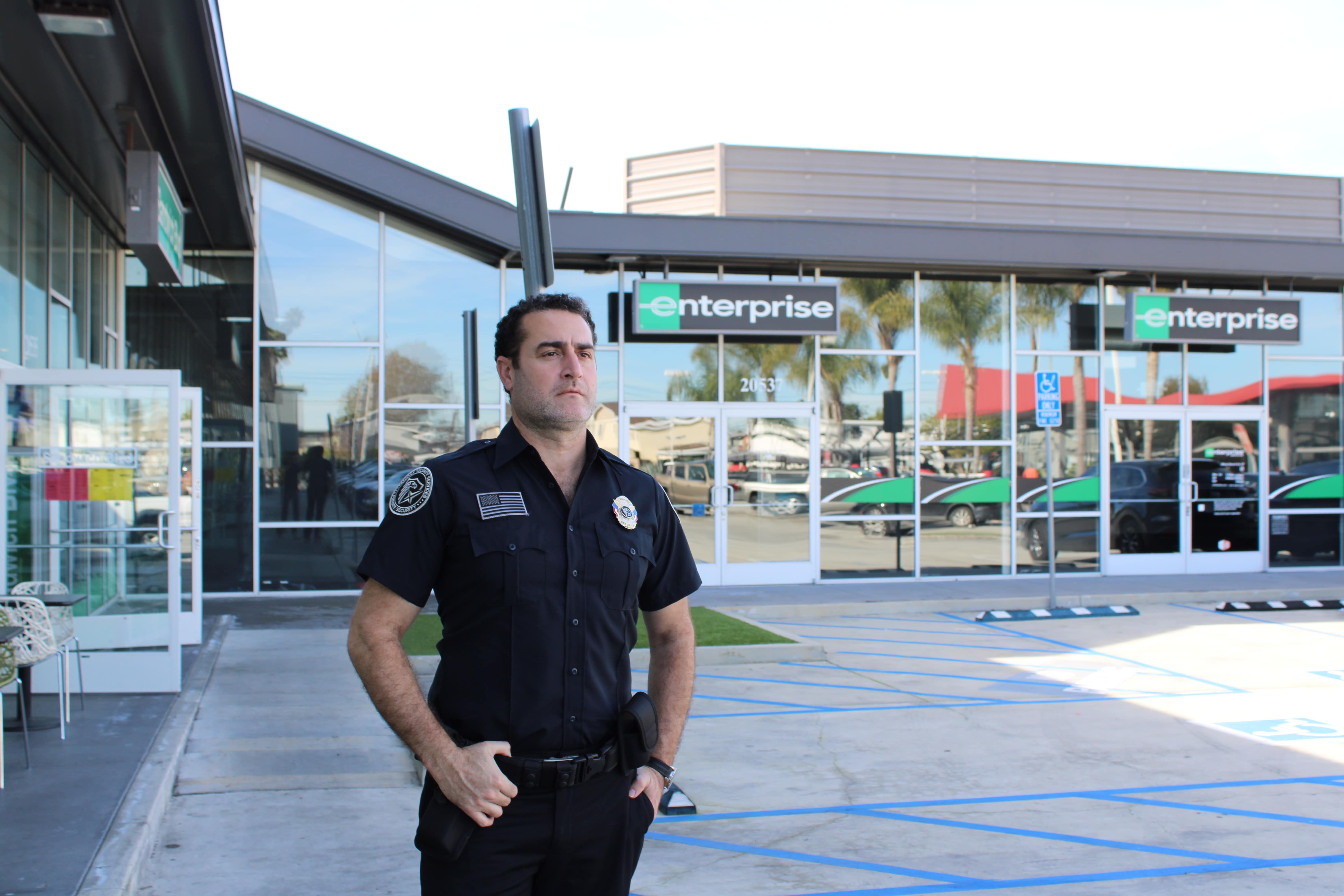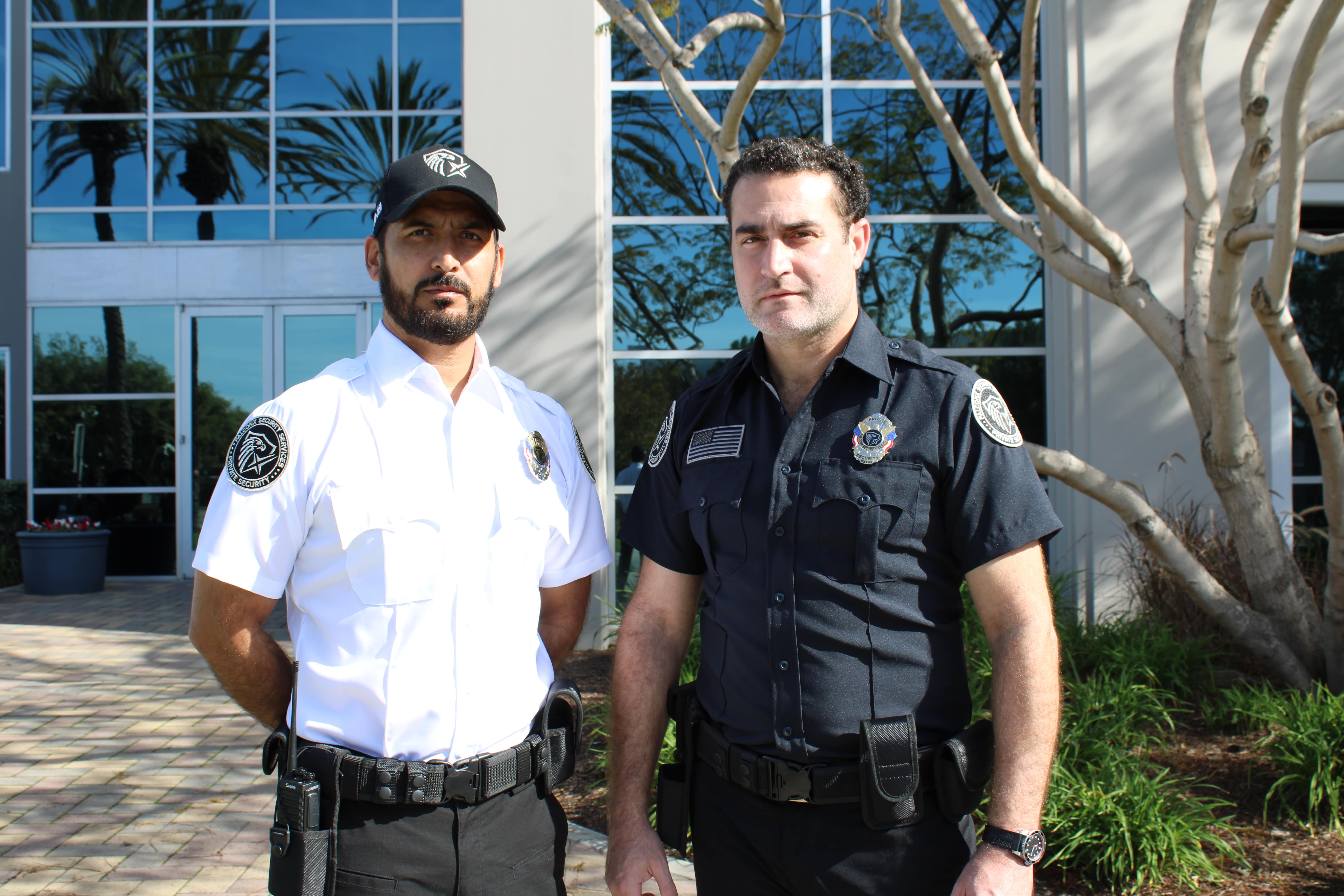Security refers to measures taken to protect against threats, while a security guard is an individual providing security services. Security encompasses various strategies and technologies to safeguard people, property, and assets from potential risks.
On the other hand, a security guard is a trained professional responsible for monitoring, patrolling, and enforcing security protocols. While security is a broader concept involving planning and implementation of protective measures, a security guard is a specific role within the security framework.
Understanding the distinction between security and security guards is crucial for ensuring comprehensive protection in various settings, such as commercial establishments, events, or residential areas. By recognizing the unique roles and responsibilities each plays, organizations can enhance their overall security posture and mitigate potential threats effectively.
The Essence Of Security
Security is a broad term that encompasses various aspects of protecting people, property, and information. A security guard is a person who provides protection and safety to individuals, businesses, and organizations. However, security is a much more comprehensive concept that involves technology, policies, and procedures to ensure safety and prevent threats.
When it comes to the safety and protection of people, assets, and property, security plays a crucial role. However, understanding the difference between security and security guard is essential. Let’s delve deeper into the concept of safety and protection, and explore the various forms security can take.
The Concept Of Safety And Protection
At its core, safety and protection are the fundamental aspects of security. Whether it is safeguarding individuals, preventing theft, or maintaining order, security aims to create an environment free from harm and potential risks. The concept of safety is all-encompassing and extends to various aspects of our lives.
When it comes to security, there are different forms it can take. Let’s explore the diverse aspects of security in various forms.
Security In Various Forms
1. Physical Security: This form of security focuses on securing physical spaces, such as buildings, properties, and premises. It involves the installation of surveillance systems, access control measures, and physical barriers to deter unauthorized access and protect against potential threats.
2. Information Security: In today’s digital age, protecting sensitive information is of utmost importance. Information security involves safeguarding data, networks, and systems from unauthorized access, data breaches, and cyber-attacks. This form of security requires robust cybersecurity measures, such as firewalls, encryption, and regular system updates.
3. Personal Security: Personal security revolves around ensuring the safety and well-being of individuals. It includes measures like personal alarms, self-defense training, and security escorts to protect individuals from potential threats, harassment, or physical harm.
4. Event Security: When it comes to organizing large-scale events, event security plays a vital role. Event security personnel are responsible for crowd control, ensuring the safety of attendees, and preventing any disruptions or incidents that may occur during the event.
5. Cybersecurity: With the increasing reliance on technology, cybersecurity is becoming increasingly crucial. It involves protecting computer systems, networks, and data from unauthorized access, malware, and other cyber threats. This form of security requires constant monitoring, regular software updates, and employee awareness training.
Each form of security serves a unique purpose and requires specialized knowledge and expertise. While security is the overarching concept, security guards play a significant role in implementing and maintaining security measures in various contexts.
Introducing The Security Guard
The role of a security guard is crucial in maintaining safety and security in various settings. From commercial buildings to residential complexes, security guards play a vital part in preventing security breaches and ensuring the well-being of individuals and property. Let’s delve into the specific roles and responsibilities, as well as the required training and skills for individuals aspiring to become security guards.
Roles And Responsibilities
Security guards are tasked with a multitude of responsibilities, including monitoring and patrolling assigned areas, maintaining order, and enforcing regulations. They also respond to emergencies, such as fires or medical incidents, and may be responsible for controlling access to a premise. Additionally, security guards are often required to write reports documenting any irregularities and suspicious activities.
Training And Skills Required
To become a security guard, individuals must undergo proper training to acquire essential skills. This typically includes learning about surveillance techniques, emergency response procedures, and conflict resolution. Furthermore, security guards need to possess strong communication skills to effectively interact with the public and law enforcement when necessary. Additionally, knowledge of legal regulations and the ability to remain calm under pressure are vital attributes for a successful security guard.
Breaking Down Security Types
Security is the practice of protecting people, assets, and information. However, there are different types of security that serve different purposes. In this article, we will break down the various types of security and examine their differences.
Physical Vs. Digital Security
Physical security refers to measures that are put in place to protect tangible assets, people, and infrastructure. This includes security guards, surveillance cameras, access control systems, and alarms. These measures are designed to prevent unauthorized access, theft, vandalism, and other physical threats.
Digital security, on the other hand, refers to measures that are put in place to protect digital assets, data, and information. This includes firewalls, antivirus software, encryption, and intrusion detection systems. These measures are designed to prevent unauthorized access, data theft, and cyber-attacks.
Public Vs. Private Security Measures
Public security measures are put in place by government agencies to protect citizens and maintain public order. This includes law enforcement agencies such as the police, military, and intelligence agencies. Public security measures are designed to prevent crime, terrorism, and other threats to public safety.
Private security measures are put in place by private organizations to protect their assets and interests. This includes security guards, surveillance systems, and access control systems. Private security measures are designed to prevent theft, sabotage, and other threats to business operations.
| Physical Security |
Digital Security |
| Security guards |
Firewalls |
| Surveillance cameras |
Antivirus software |
| Access control systems |
Encryption |
| Alarms |
Intrusion detection systems |
- Physical security refers to measures that are put in place to protect tangible assets, people, and infrastructure.
- Digital security refers to measures that are put in place to protect digital assets, data, and information.
- Public security measures are put in place by government agencies to protect citizens and maintain public order.
- Private security measures are put in place by private organizations to protect their assets and interests.
- Physical security measures include security guards, surveillance cameras, access control systems, and alarms.
- Digital security measures include firewalls, antivirus software, encryption, and intrusion detection systems.
- Public security measures include law enforcement agencies such as the police, military, and intelligence agencies.
- Private security measures include security guards, surveillance systems, and access control systems.
The Evolution Of Security Measures
The concept of security has undergone significant changes over time, with advancements in technology and the ever-growing need for enhanced safety. From the historical perspective to modern advancements, security measures have evolved to encompass a wide range of practices and tools. In this article, we will explore the difference between security and security guards, and how security measures have evolved over time.
Historical Perspective
In ancient times, security primarily relied on physical barriers such as walls, gates, and moats to protect individuals and property. Guards were stationed at strategic points to monitor and control access. As societies developed and the need for more sophisticated security arose, the role of security guards expanded. They became responsible for not only guarding physical locations but also maintaining order and ensuring the safety of individuals within those spaces.
During the industrial revolution, the rise of factories and industrial complexes introduced new security challenges. Security guards played a vital role in preventing theft, monitoring equipment, and maintaining discipline among workers. However, the limitations of human surveillance became evident as facilities grew in size and complexity.
Modern Advancements And Technology
The advent of modern technology has revolutionized the field of security. Today, security measures go beyond the presence of security guards. Advanced surveillance systems, access control systems, and biometric authentication have become integral parts of security protocols. These technological advancements provide a more efficient and comprehensive approach to safeguarding people, property, and information.
Surveillance systems equipped with high-definition cameras and artificial intelligence can monitor vast areas in real-time, detecting suspicious activities and alerting security personnel instantly. Access control systems allow for secure entry and exit, ensuring that only authorized individuals have access to restricted areas. Biometric authentication, such as fingerprint or facial recognition, adds an additional layer of security by verifying the identity of individuals.
Moreover, modern security solutions also include alarm systems, motion sensors, and cybersecurity measures to protect against physical and digital threats. These advancements have not only increased the effectiveness of security measures but also reduced the reliance on human intervention, thereby minimizing the risk of human error or negligence.
Comparison between Security and Security Guard
| Security |
Security Guard |
| Encompasses a wide range of practices, technologies, and protocols aimed at ensuring safety and protection. |
Refers to individuals employed to provide physical security by monitoring and patrolling designated areas. |
| Includes surveillance systems, access control, biometric authentication, alarm systems, motion sensors, and cybersecurity measures. |
Relies on human presence and intervention to deter threats, respond to incidents, and maintain order. |
| Utilizes technology to enhance efficiency, accuracy, and coverage of security measures. |
Depends on the skills, training, and judgment of security guards. |
In conclusion, the evolution of security measures has seen a shift from solely relying on security guards to incorporating advanced technologies and protocols. While security guards remain an essential component of physical security, modern security solutions provide a more comprehensive and efficient approach to safeguarding individuals, property, and information. By leveraging the benefits of technology, organizations can enhance their security measures and adapt to the ever-changing landscape of threats and risks.
Security Guards In The Security Ecosystem
Security Guards play a crucial role in the security ecosystem by ensuring the safety and protection of individuals and properties. They are the frontline defense against potential threats and risks.
Integration With Technology
Security Guards leverage advanced technologies like surveillance cameras and access control systems to enhance security measures.
Collaboration With Law Enforcement
Security Guards work hand in hand with law enforcement agencies to report incidents and maintain a safe environment.
Analyzing The Differences
Security encompasses a broader concept of safeguarding assets, while a security guard is an individual responsible for physical protection. The key distinction lies in the scope of protection offered, with security addressing comprehensive measures and security guards focusing on on-site monitoring and response.
Challenges In Security And Security Guard Roles
In the realm of security, both the overarching concept of security and the specific role of a security guard face a myriad of challenges. Understanding these challenges is crucial in ensuring that both security and security guard roles are effectively fulfilled in today’s ever-evolving landscape.
Facing Modern Threats
Today’s security landscape is marked by an array of modern threats that are constantly evolving and becoming more sophisticated. From cyber-attacks to physical breaches, security and security guard roles must adapt to the complexities of these modern threats. This necessitates a proactive approach to identifying and mitigating potential risks, ensuring that security measures are robust and resilient against emerging threats.
Adapting To New Technologies
The rapid advancement of technology presents a significant challenge for security and security guard roles. Embracing new technologies such as surveillance systems, biometric access control, and AI-powered threat detection tools is imperative for staying ahead of potential security breaches. However, this adaptation also requires continuous training and skill development for security guards to effectively utilize these technologies in safeguarding the premises they are entrusted to protect.
The Future Of Security And Security Guards
The future of security and security guards is rapidly evolving as technology continues to advance and the nature of threats becomes increasingly complex. It is crucial to understand the differences between security and security guards to anticipate the future trends and requirements in this industry. This will enable us to predict the changing landscape and prepare security professionals for the challenges ahead.
Predictions And Trends
As technology becomes more integrated into security systems, the future will see an increased reliance on AI-powered surveillance, drone patrolling, and biometric access control. This shift will lead to a more proactive and predictive approach to security, aiming to prevent threats before they occur.
Training And Education For Tomorrow
In the future, security guards will need to be equipped with advanced technical skills to operate and manage complex security systems. Training programs will focus on cybersecurity, data analysis, and advanced surveillance techniques to prepare security professionals for the evolving landscape of threats.
Frequently Asked Questions
What Is The Difference Between Security And Security Guard?
A security guard is a person hired to protect property and people, while security refers to measures and systems put in place to safeguard against threats. Security guards physically enforce security measures, while security encompasses a broader range of strategies and technologies.
What Is The Difference Between Safety Officer And Security Guard?
A safety officer ensures workplace safety by managing risks and hazards, implementing safety policies, and conducting safety training. A security guard, on the other hand, is responsible for preventing theft, vandalism, and other criminal activities. While both roles involve ensuring safety, they have distinct focuses and responsibilities.
What Is The Difference Between A Bodyguard And A Security Guard?
A bodyguard protects individuals, while a security guard protects property and premises. Both ensure safety.
What Makes A Security Guard?
A security guard is responsible for protecting people, property, and assets. They maintain a safe environment by monitoring surveillance equipment, patrolling areas, and enforcing rules. Additionally, they respond to emergencies, report incidents, and provide customer service when needed.
Conclusion
Understanding the difference between security and security guards is crucial for businesses and individuals. By knowing the distinctions, you can effectively utilize their services for your safety and protection needs. Whether it’s for securing your home or business premises, choosing the right option is essential for peace of mind.
So, always consider your specific security requirements before making a decision.




